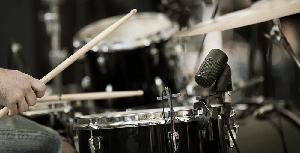
Do your employees drag their feet to the office every Monday morning? Or perhaps they start day dreaming right after lunch hour every day? The feelings of sluggishness, inertia, as well as boredom, distractions, and low office morale can cause productivity to take a hit on a daily basis.
So, how can productivity be increased? Can listening to music make your employees more productive at work?
Scientific research proves that music raises workers' productivity. According to Dr. Teresa Lesiuk's study at the University of Windsor, Canada, music creates a “positive mood change and enhanced perception on design while working.” Although her statement is valid, it does not sound as simple as turning on the radio and listening to whatever tune comes on. There are certain factors that should be taken to account to boost productivity whilst listening to music.
Each type of music genre has a different effect on our brains' functions. Take classical music for instance. Don Campbell's book, The Mozart Effect: Tapping the Power of Music to Heal the Body, Strengthen the Mind, and Unlock the Creative Spirit, argues that listening to Mozart's music boosts scores on spatial IQ tests.
The nature of the job itself should also be taken into consideration. The music played should match the tasks being done – for example, ambient music works best for memory work, while energetic music pairs well with repetitive work. However, there are certain jobs that work better without music. A 1989 study by University College London’s Department of Psychology suggests that complex managerial tasks are best performed in silence.
To figure out how the use of music at work can optimize productivity, let’s take a look at the four ways music can help raise productivity at work.
1. Music reduces boredom, boost work performance levels and creativity
One of the biggest causes of work-related stress is boredom, which curtails high performance and work satisfaction levels. It reduces an employee's sense of ownership and pride that an employee should take in one's work.
If you want any employee to thrive at work, music helps to diminish boredom. By implementing music at work, your employees will enjoy their tasks, and they will eventually start to take risks, solve problems, show initiative and maximize efficiency. Take repetitive tasks like production line work or data entry as examples. A study by Mindlab International Ltd shows that pop and dance music produces the fastest overall performance for getting work done, plus it helps to cut mistakes when compared to when not listening to music at all.
To inject a feel-good factor into work that can be dreary and mundane, turn up some pop or dance music – something with an upbeat rhythm. Music makes these repetitive tasks more enjoyable.
Music can also increase an employee's creativity. A surefire strategy to boost creativity is to shuffle the music on your office playlist so that there’s an air of unpredictability in an otherwise predictable environment. Each time a new song comes up, it awakens one's senses and provides a refreshing change to your existing ideas.
2. Music can improve concentration and speed
Certain jobs require a person’s utmost concentration and attention span. For intense and immersive work, which requires speed and leave no room for error, Mindlab recommends classical music. Because this type of music is ambient, listening to it is best for completing tasks that involve equations, accuracy and great attention to detail. It will also block out any distraction at noisy workplaces.
Other than classical music, there are other genres that improve concentration. Music without lyrics works well, as lyrics can be distracting. Familiar tunes also enable you to focus on the task at hand, rather than having to listen for what’s coming up next, as you’ll naturally be curious about the new music.
Keep the volume of the music soft – let it run as if you're playing background music in the office so it won’t divert attention away from your work.
3. Music can improve the work environment and attitudes
Have you ever noticed that upbeat, mainstream pop and dance music is played in most retail spaces? Not only does upbeat music get customers going and excited about shopping, but it also energizes the employees. Feel-good music livens up the workspace, and creates a kind a company culture that other applicants may want to join that organization.
So how does listening to music improve one's attitude? First, it creates positive vibes. Most clients feel happy to visit a workspace, where they see that employees are keeping calm under pressure and feeling happy about their work. Second, Co-workers are also able to talk about what kinds of music they like, and perhaps even find shared musical interests with one another.
Music is a fantastic way to relax and unwind in high-stress environments. It brings out better attitudes among employees, who feel happier, especially when they need a morale boost.
Music helps you take your mind off the immediate problems, and enables you to look at the big picture. On a subconscious level, music that you enjoy and are familiar with can bring up positive experiences from the past, and help you feel good at work.
As companies go through ups and downs, music can give employees a much needed boost of confidence and relieve stress. Think about or listen to happy, upbeat songs such as “Walking on Sunshine” by Katrina & The Waves, and “Brown Eyed Girl” by Van Morrison.
4. Music can improve memory
Music can induce a state of meditation and allows you to disengage from the “noise”, so you can retain information better. Nurses (who need to remember treatment protocols), and sales representatives (who need to retain product information), benefit from this.
And the type of music matters. There are differences in the effect of music, even within the same genre. In reference to the Mozart Effect, a study by the Sapienza University of Rome found that by listening to Mozart's “L'allegro con spirito,” triggered changes in brain activity linked to memory and cognition. However, the same changes were not recorded when listening to the classical Beethoven tune, Fur Elise. Similarly, according to another study on the Vivaldi Effect, Vivaldi's "Four Seasons" had a positive effect on older adults' cognitive performance in two working memory tasks.
In addition, feel good tunes trigger positive emotions, which are good for memory tasks, while negative emotions impair one’s memory. Dr. William Klemm of A&M University found that the unique rhythms and syncopation of jazz of the timeless jazz classic, “Take Five” by Dave Brubeck, can improve one’s memory.
Conclusion
Music does indeed has a profound impact on productivity in the workplace. But every office situation and industry is different and different environments call for different playlists for the office in order to optimise productivity. Therefore, strategies need to be tested thoroughly before they can be applied – and there are no guarantees that they may work. In fact, employees who are musicians may find background music more distracting, compared to their non-musician counterparts. This is because it’s easier for a non-musician to filter the tunes into ambient sounds, while a musician’s mind gets drawn to guitar riffs, drum fills, tempo changes, modulations, and so on.
Work associates may share different tastes in music, and the company should be mindful of each employee’s response to the music. On the one hand, using headphones can alienate colleagues from one another. On the other hand, the music being played through the common audio system may not be everyone’s cup of tea.
A good idea would be to keep the volume of music low, and play easy listening tunes that aren’t jarring to any particular employee. Non-vocal music, like classical music or jazz, is again ideal, so that workers aren’t distracted from important conversations. As such, a set playlist would work better than radio, since you’d be able to control what music is on the line-up.
Music as a tool to bring an organization to new heights is worth exploring, especially if the office is going through some problems, like boredom, distractions, or a poor work culture. There’s also research to show that a person’s musical preference can be linked to different thinking styles.
So, who knows – as the use of music is further studied and explored, musical choices could replace Myers–Briggs Type Indicators as the next big thing in companies’ hiring practices.
References
Cacciafesta, M., Ettorre, E., Mecarelli, O., Verrusio, W., Vicenzini, E., & Vanacore, N. (2015). The Mozart Effect: A quantitative EEG study. Consciousness and cognition, 35, 150-5. https://www.ncbi.nlm.nih.gov/pubmed/26036835
Campbell, Don, (1997), The Mozart Effect: Tapping the Power of Music to Heal the Body, Strengthen the Mind, and Unlock the Creative Spirit
Furnham, Adrian, and Bradley, Anna. (1997) 'Music while you work: the differential distraction of background music on the cognitive test performance of introverts and extraverts.' Appl. Cognit. Psychol., 11: 445–455 http://www.academia.edu/2662054/Music_while_you_work_The_differential_distraction_of_background_music_on_the_cognitive_test_performance_of_introverts_and_extraverts
Greenberg, David (2015), What Your Musical Taste Says About Your Personality, Accessed September 11 2017. http://theconversation.com/what-your-musical-taste-says-about-your-personality-50492
Kiemm, William (2013), Does Music Help Memory? Accessed September 11 2017 https://www.psychologytoday.com/blog/memory-medic/201312/does-music-help-memory
Lesiuk, Teresa (2005), The Effect of Music Listening on Work Performance, Accessed September 11, 2017 http://journals.sagepub.com/doi/abs/10.1177/0305735605050650?journalCode=poma&
Mammarella, Nicola & Fairfield, Beth & Cornoldi, Cesare. (2007). 'Does music enhance cognitive performance in healthy older adults? The Vivaldi effect.' Aging clinical and experimental research. 19. 394-9. https://www.researchgate.net/publication/5840180_Does_music_enhance_cognitive_performance_in_healthy_older_adults_The_Vivaldi_effect
Mindlab International Ltd (2014), 'MusicWorks: How Music Positively Affects Office-Based Tasks,' Accessed September 11th 2017. https://www.youtube.com/watch?v=qWlw1Kga_lA
Ready to learn music?
Start learning with our 30-day free trial! Try our music courses!
About Liberty Park Music
LPM is an online music school. We teach a variety of instruments and styles, including classical and jazz guitar, piano, drums, and music theory. We offer high-quality music lessons designed by accredited teachers from around the world. Our growing database of over 350 lessons come with many features—self-assessments, live chats, quizzes etc. Learn music with LPM, anytime, anywhere!










